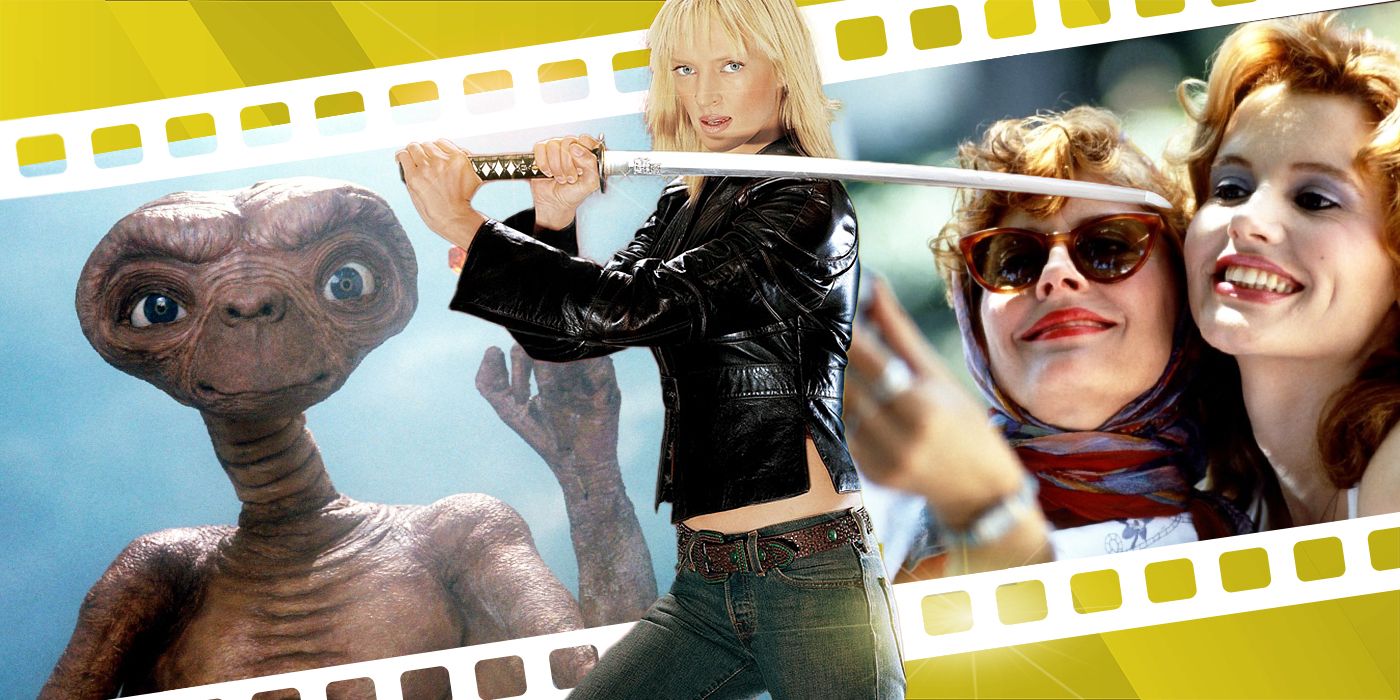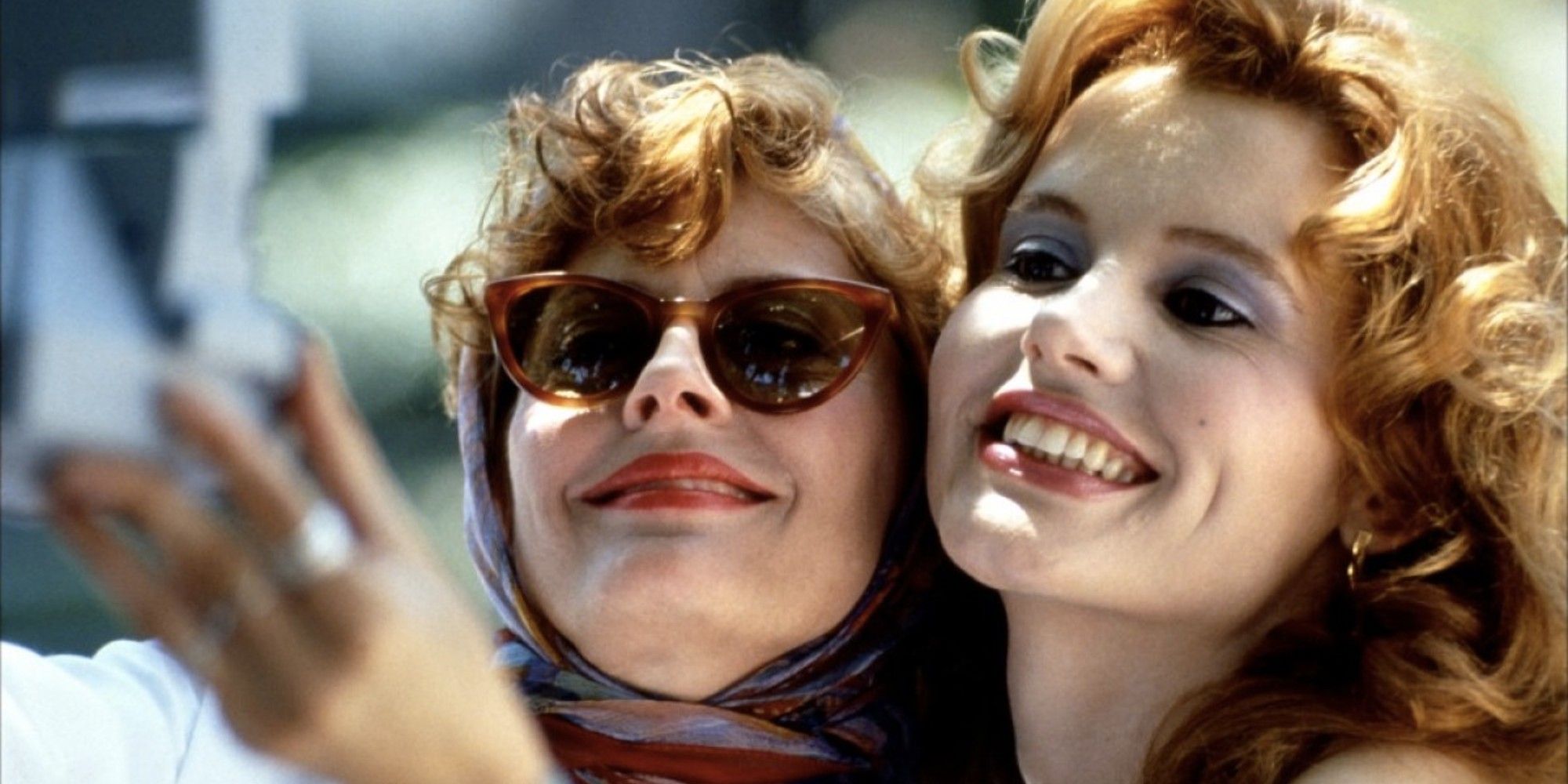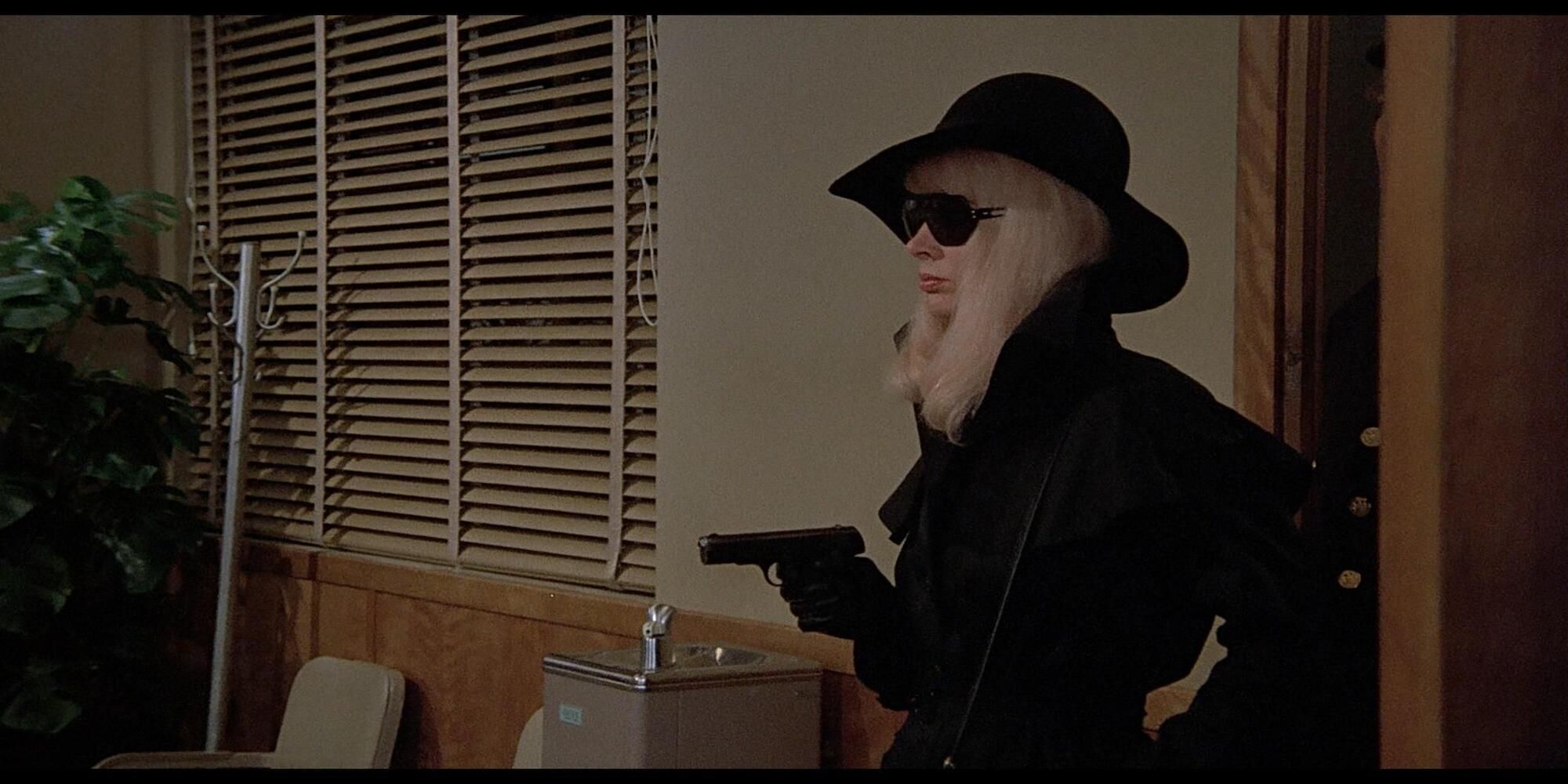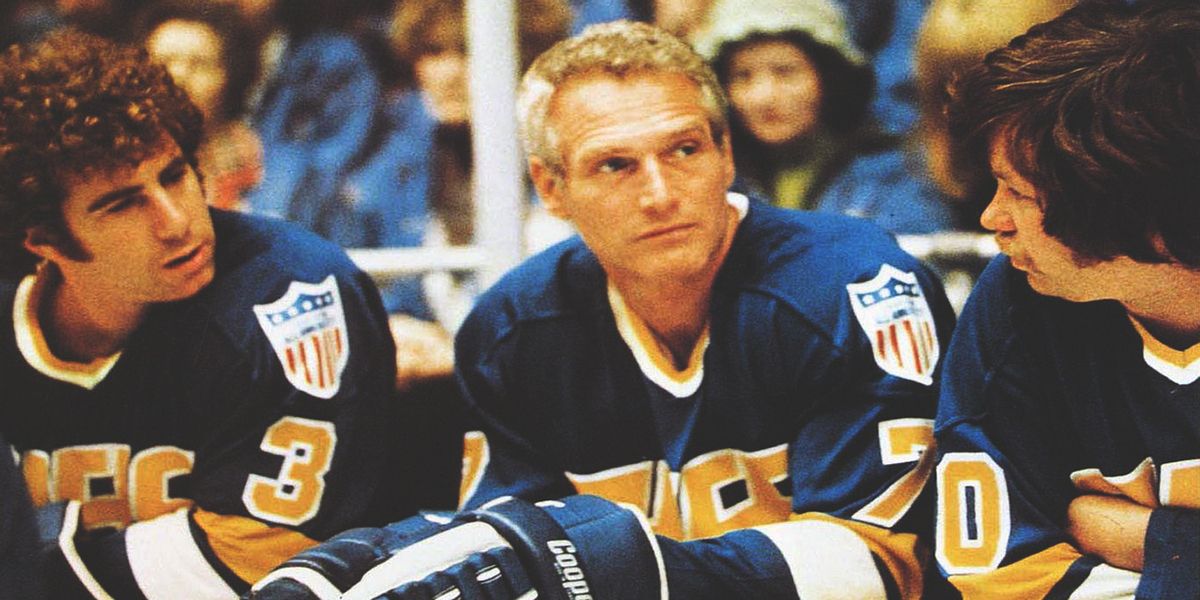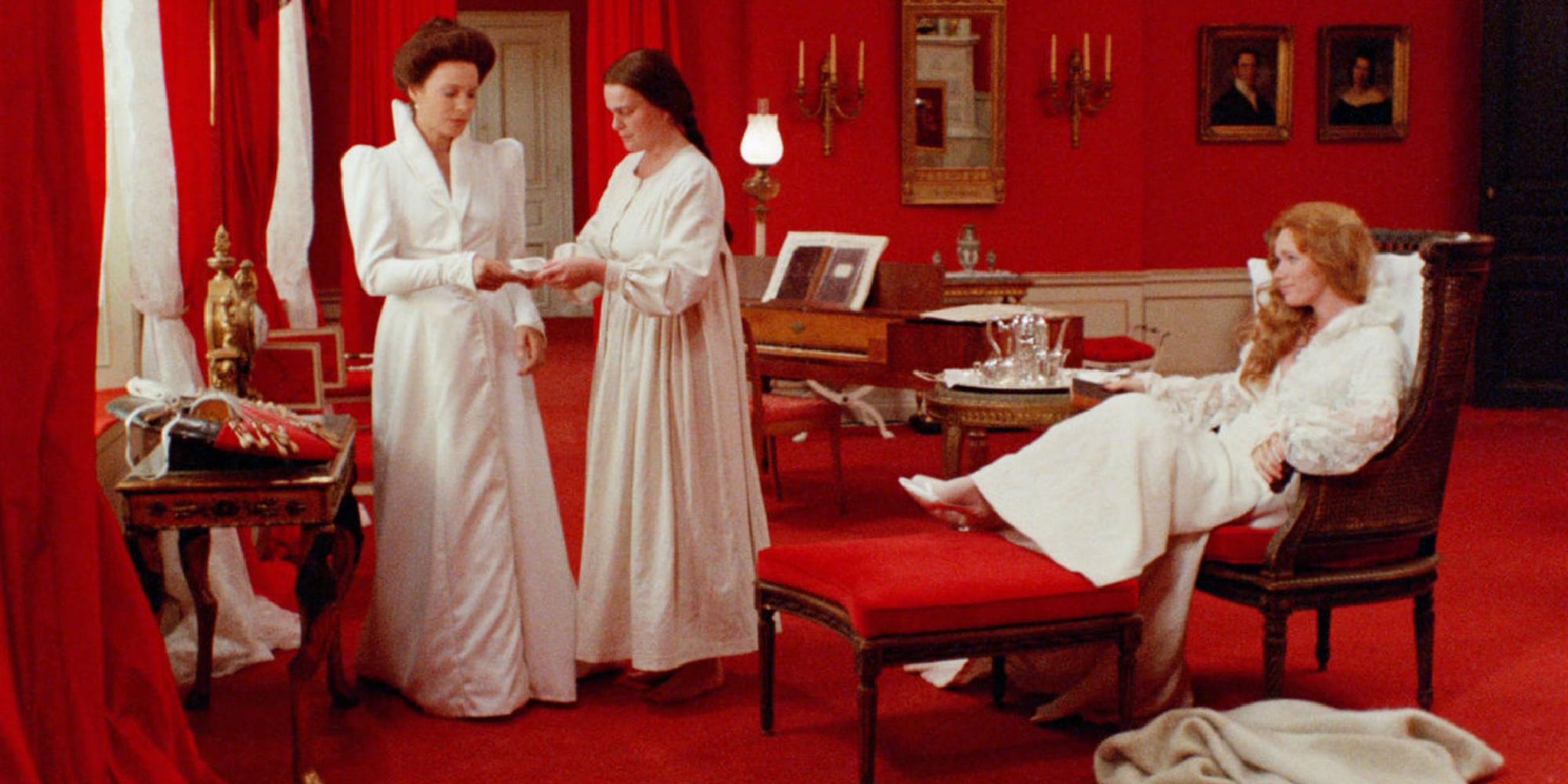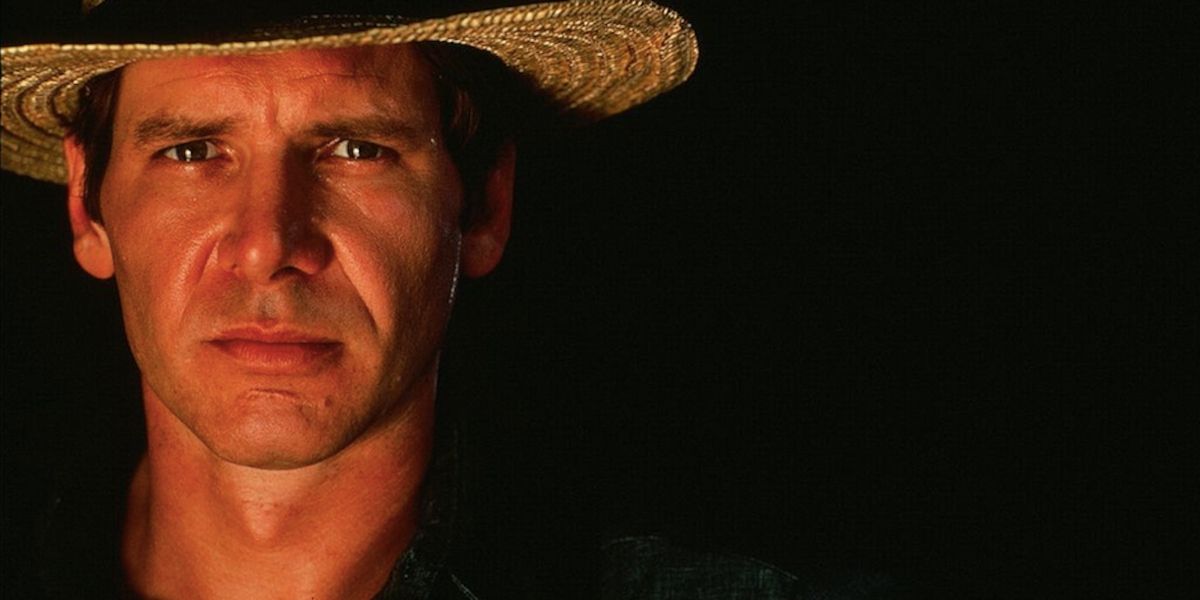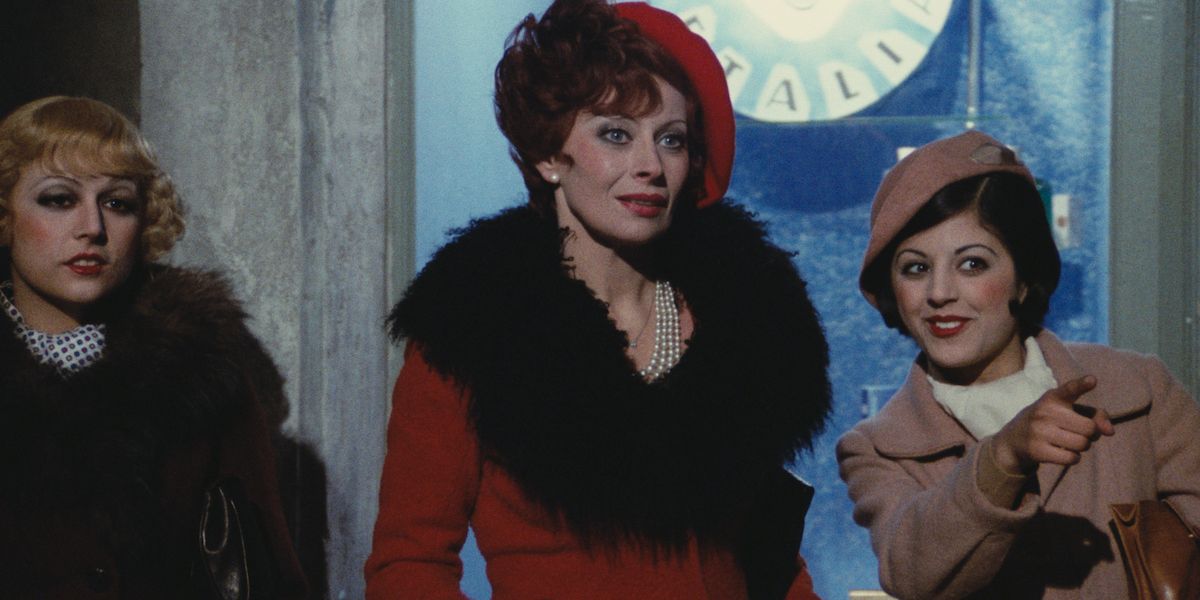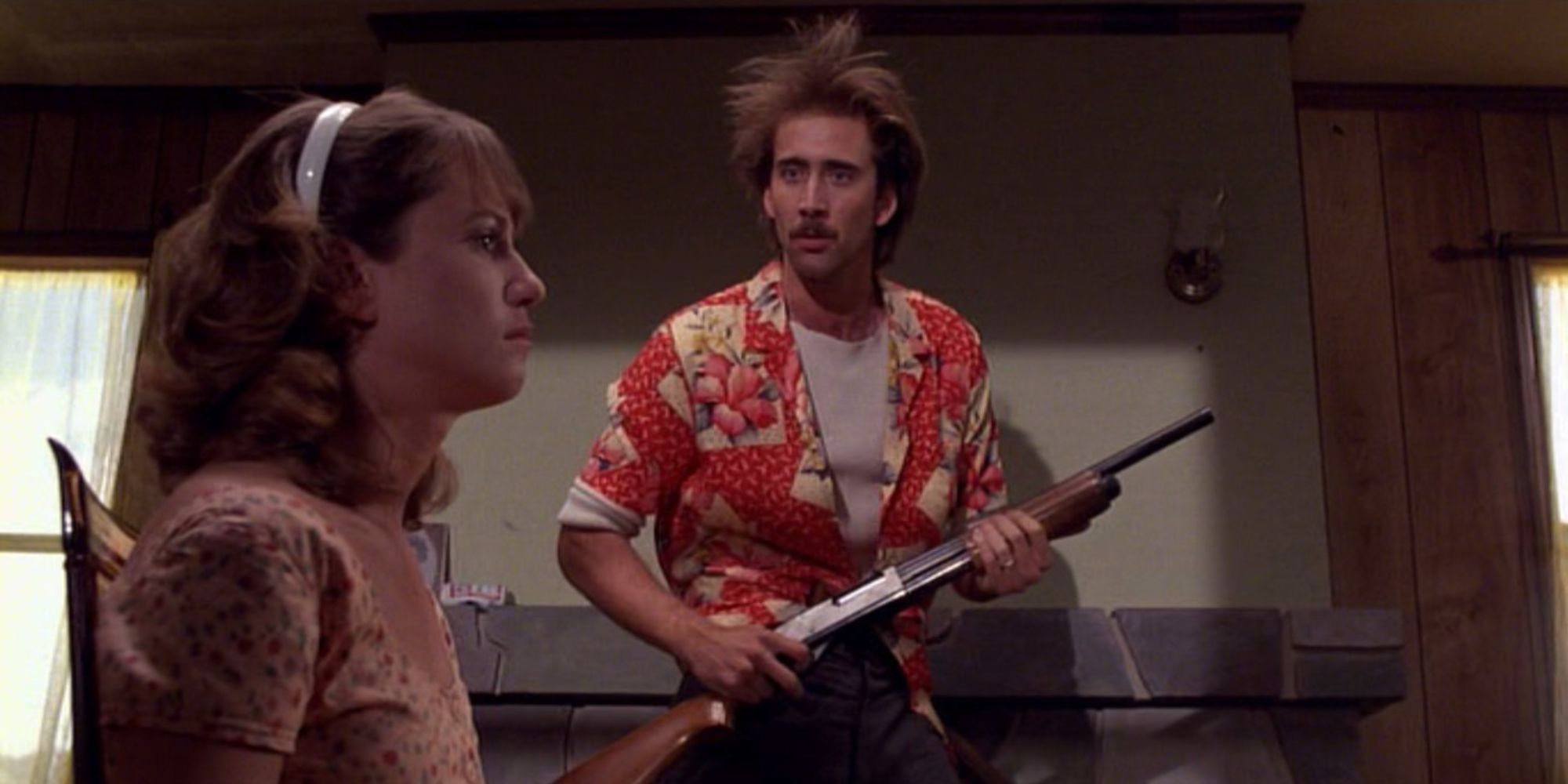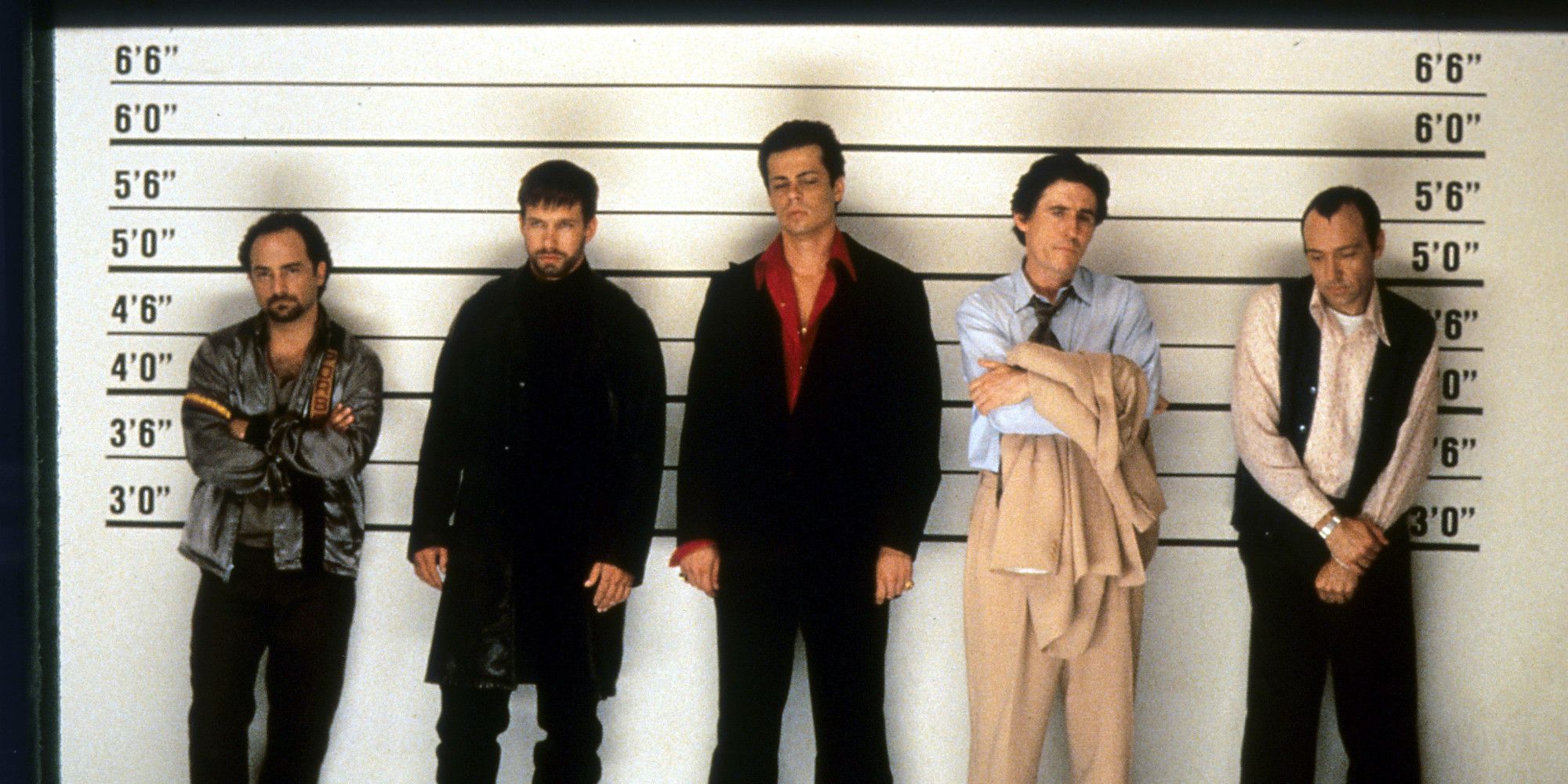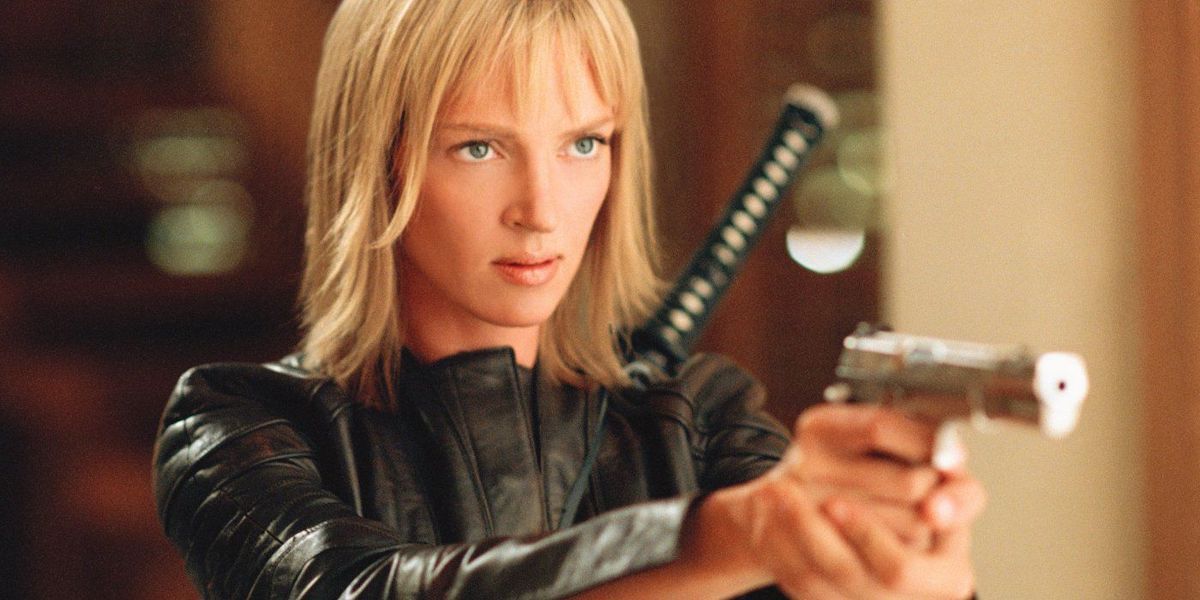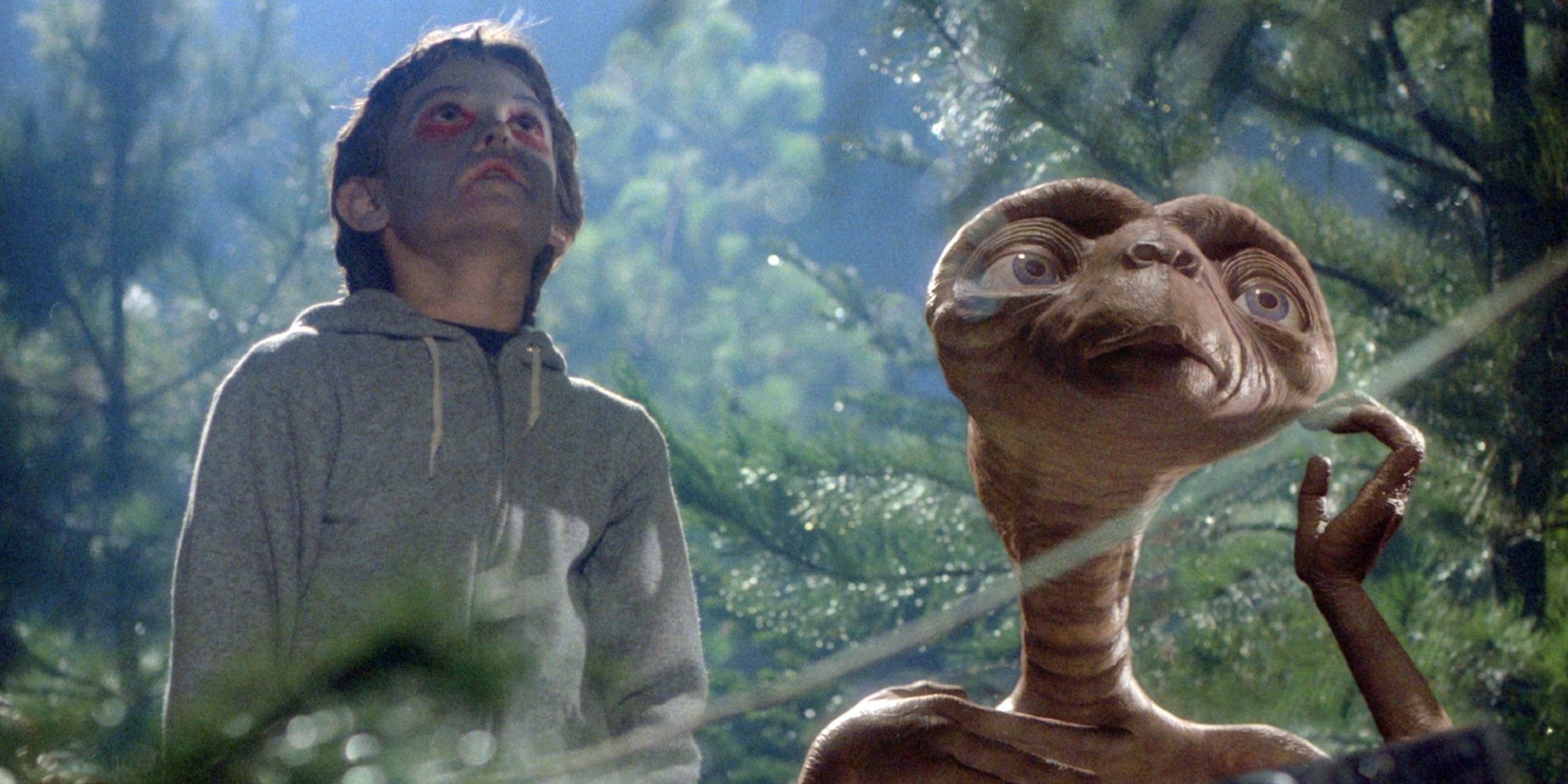One of the most prestigious international film festivals, the Cannes Film Festival has been a hub for great movies from all around the world. Held yearly on the French Riviera, many movies screened at the competition have gone on to worldwide success, with many being Oscar-winning.
However, not every movie shown fits the requirement of the competition. These films, although acknowledged as interesting or important, don't make the cut for the prize and thus are deemed "screened out." Now, some of these movies are considered modern classics.
10 'Thelma & Louise' (1991)
A classic modern road movie, Thelma & Louise provides an honorable example of the genre without reinventing it. It's a likable script, but the movie predominantly succeeds because of its two central performances, provided by Geena Davis and Susan Sarandon. Both actors have never been more effortless in their natural screen personas.
While the movie may run a tad long, Callie Khouri's winning script is one of the '90s best writing debuts. While being screened out at Cannes is a shame for Khouri as well as director Ridley Scott, neither should feel bad, as films from legendary directors including Mel Brooks, Akira Kurosawa, and Agnes Varda also got screened out that year.
9 'Family Plot' (1976)
One of Alfred Hitchcock's more rollicking flicks, Family Plot is a convivial wink rather than a thunderous nod. It is, like many of the master's works, sly and cunning. However, there is a whimsy and jocosity that is absent in his best-known movies. Sharply schemed and meticulously framed, Family Plot proves one of the director's more underrated films.
Bringing together four of the more underrated and eccentric actors of the '70s, Karen Black, Barbara Harris, Bruce Dern, and William Devane, Hitchcock creates a neat scenario that plays out with the utmost intrigue. The movie was Hitchcock's fifty-third and was the closing film for the 1976 Cannes Festival, ironic as it was also Hitchcock's last.
8 'Slap Shot' (1977)
Released in the heart of his legendary 1970s streak, it was a brave choice for George Roy Hill to direct Slap Shot, a savage, raucously funny sports comedy. While it may not have seemed so at the time, Slap Shot has proved to be one of Hill's most beloved works. Although critics failed to hail it then, the movie has since been deemed a cult classic.
Written by Nancy Jones, one of the 20th century's most underappreciated screenwriters, Slap Shot is both engrossing and authentic. It didn't earn as much as the typical film for its star, Paul Newman, but saw the icon given one of his most important roles. Along with his previous Hill collaboration, The Sting, and the future Absence of Malice and The Verdict, Slap Shot saw an integral transition for Newman from movie star to leading man character actor.
7 'Cries and Whispers' (1972)
Cries and Whispers reasserted Ingmar Bergman as a prophet of psychological poetry. As haunting and mystical as any of his works, the film would become a touchstone for Bergman, paving the way for a resurgence with projects deemed by many to be some of his finest, including Scenes From a Marriage and Fanny and Alexander.
After a string of films that underperformed with critics, Cries and Whispers would be nominated for several Oscars, including Best Picture. Its color palette, rich with saturated reds, is one of Bergman's best-shaded metaphors. Per usual, the filmmaking is stark and bare-boned but cuts deep enough to leave staggering marks.
6 'Witness' (1985)
The opening film to the 1985 Cannes Film Festival, Witness would transcend genre tropes to become not only one of the 1980s better-regarded thrillers but also a sleeper hit, grossing over $100 million. The movie has the handprint of its director Peter Weir all over it, from the theme of clashing cultures to its insistent humanity.
Smack dab right in the center of Harrison Ford's 80s run; the star has scarcely been more agile, providing a credible brawn hero and tender love interest. Despite being marred by some plot platitudes and an unimaginative ending, Witness is a sensitively made crime flick with the right blend of action and compassion.
5 'Amarcord' (1973)
A deliciously jaunty, liberated work, Amarcord finds Federico Fellini at ease with his virtuosity. Few films have ever felt more naturally, effortlessly made, as if this inviting outing was not constructed with the utmost clockwork. Somehow, Amarcord unlocks both its audience's memory and imagination.
There is an undeniable nostalgia that Amarcord pulls off, a rarity for a mature artist like Fellini at this stage. In addition, it holds its charm to remain tasteful throughout. It is a colorful film of such vitality and wonder, yet not without a grown wise interior.
4 'Raising Arizona' (1987)
Raising Arizona may be one of the Coen brothers' more divisive works, if only because it leans heavily into their eccentric, mannerist urges. It is not the duo's wittiest or most focused script, and so the effectiveness of the film's humor will largely depend on the particular viewer's taste. However, the more metaphorical elements of Raising Arizona are quite interesting.
The movie's study of morality, identity, and the nature of man, shown through the character Leonard Smalls, is Beckett-esque. In addition, its examination of happenstance is reminiscent of Fargo, with the idea of fertility as the central link. Like Raising Arizona, Something Wild would also be screened out at Cannes that year, in what could make for a fun, pseudo-screwball comedy double feature.
3 'The Usual Suspects' (1995)
The Usual Suspects is a magic trick. Is it simple but laced up to look complicated, or complicated but veiled to look simple? It is a mystery inside an enigma, but one that is uncommonly tactile. The film is led by its screenplay, from Christopher McQuarrie, a masterful ballet that is colorful without being pretentiously idiosyncratic.
The film assembled one of the 90s most iconic casts, and each plays their role with the instinctiveness of a stage performer who has breathed inside a character for months. The ending of The Usual Suspects is venerated to the point of parody, but what makes it so exceptional is its gracefulness, a clever twist that doesn't need to resort to cheap manipulation.
2 'Kill Bill: Volume 2' (2004)
Kill Bill: Volume 2 was screened out at the 2004 Cannes Film Festival, at least in part, because its director, Quentin Tarantino, was the Jury President for the competition that year. Going on Tarantino's reputation, it wouldn't be indefensible to think he might have chosen his love child as a winner if he had the chance, and if he did, it wouldn't be undeserved.
The second iteration in the saga is a commanding work of great verve and technical excellence, as well as being perhaps Tarantino's most moving picture. It is one of cinema's great sequels if one is willing to divide the movies based on their theatrical release. Like much of Tarantino's work, Kill Bill: Volume 2 is a homage that is in constant communication with what it transcends.
1 'E.T. the Extra-Terrestrial' (1982)
When you think of the Cannes Film Festival, what comes to mind is likely some of the best cinema from around the world has to offer. The 1982 Cannes Film Festival was no different, honoring movies from around the globe, from Yol to Shoot the Moon, and great directors, from Werner Herzog to Wim Wenders. However, the crowd-pleasing E.T. doesn't come to mind.
Despite closing the festival, E.T. would be screened out of competition. Yet still, the movie would go on to break the box office, holding the record for highest-grossing film of all time for 11 years until Steven Spielberg beat his own record with Jurassic Park. A spectacle of infinite marvel, E.T. captures the best of Spielberg's awe-inspiring gifts.

